Pioneers of Pagonia is The Settlers’ second coming

German studio Envision Entertainment is currently working on one of my most anticipated titles of 2023, Pioneers of Pagonia, and at gamescom 2023 I had the opportunity to get an in-depth look at the upcoming city-builder from game creator Volker Wertich himself.
Wertich, in case you don’t know, is a bit of an icon in the German video games industry – he’s the brain behind The Settlers, a series of city-builder games that many fans of the genre both from Germany and abroad remember very fondly. I used to watch my dad play The Settlers 2, 3, and 4 before I had to go to bed in the evenings (like one did in the days before live streaming) and these entries into the series were some of the first games I played myself once I got my own PC.
Call it nostalgia, but they don’t make them like they used to.
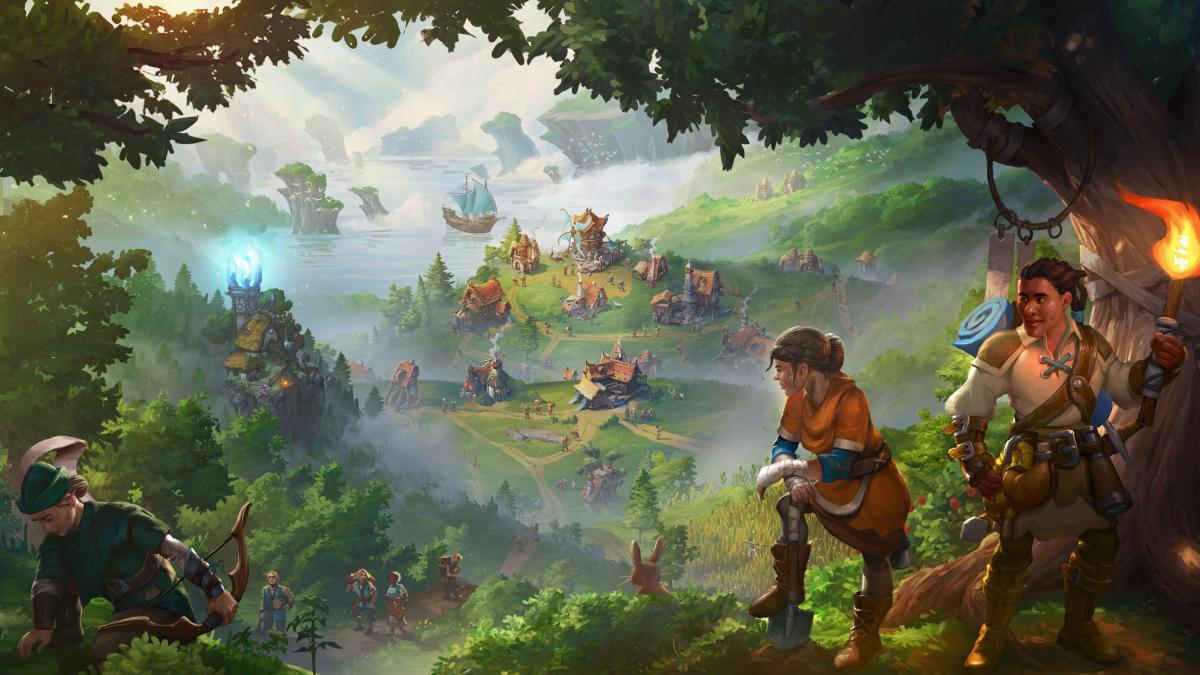
Today’s The Settler games have nothing to do with those originals – Wertich himself didn’t want to dwell too much on that, saying that Ubisoft can do whatever it wants with the IP, since they own it, even though he may disagree with their direction. Hearing him talk about Pioneers of Pagonia, which very clearly is a spiritual successor to what he did with The Settlers back then, tells you enough about his thoughts without him having to be explicit.
Pioneers of Pagonia is not about speed and build orders. It’s a relaxing game about planning and reacting to any problems that might pop up. Everything you see your people doing in the game is actually what’s happening – nothing is hidden under the hood. Follow one of your hunters, watch them shoot a deer, bring back the carcass to their hut, and then follow the meat as its carried to a tavern, where it’ll be cooked into a dish and then served to the patrons sitting on the benches around it – you can spectate the entire process from start to finish, from raw resource to final product, for every good in the game. Each economic process has its own animations.
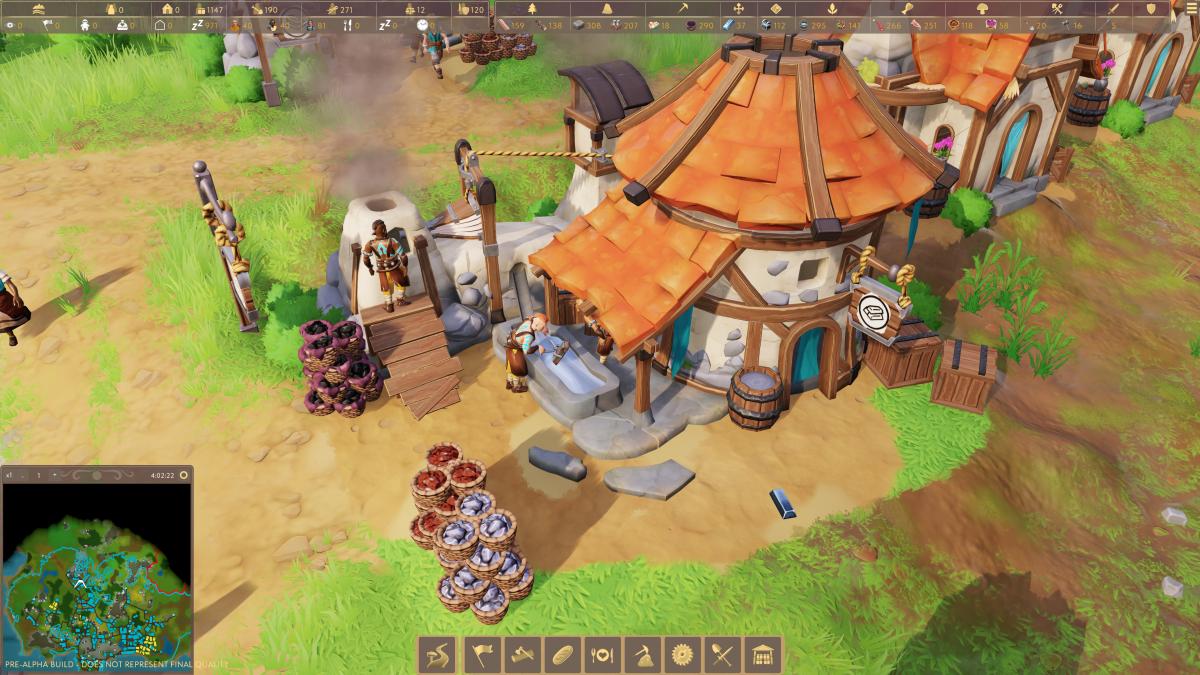
Each match of Pioneers of Pagonia happens on a procedurally generated island and your goal is to unite the disparate tribes of Pagonians found there into one civilization, absorbing their villages into your growing metropolis. You do this by fulfilling their requests for goods or protection, increasing your standing with them. For that, though, you’ll need a robust economy that’s ever expanding.
Expansion requires you to manufacture border stones, which your specialized pioneers can then use to claim more land for your town and expand your borders – it’s very similar to how things worked in The Settlers. First, though, you need to lift the fog of war around you, which is done by another job class, the scout. They’ll require rations to go on expeditions, bringing food into the equation. As you may notice, being a relaxing title does not mean that Pioneers of Pagonia will be without its complexities, and these will grow over time as your settlement becomes larger.
Every building will be unlocked right from the start, there is no research or going through tech trees – all you need is enough resources to build them. Building placement is free, though you can activate a grid to assist you with space management. Roads, too, are very easy to place. They’ll be the veins of your town and route planning will be one of the most crucial skills you’ll have to showcase – traffic jams can bring any economy to a standstill.
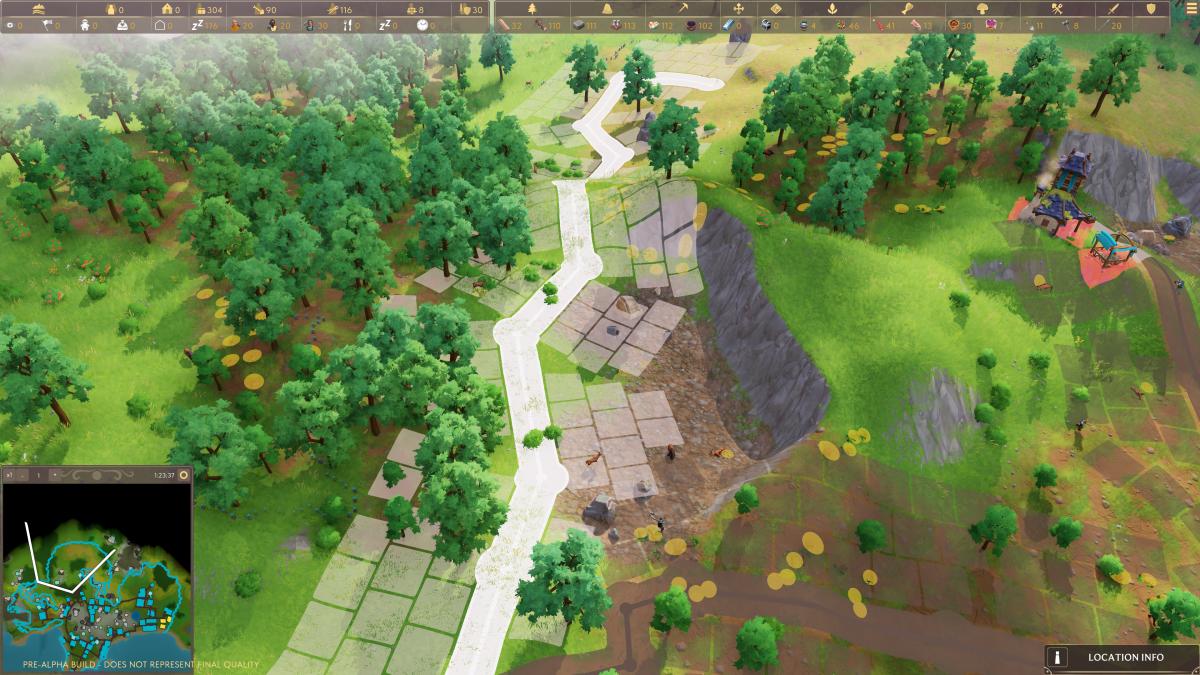
Growing your population requires a steady input of food and the construction of houses, which idle carriers will use as rallying points to wait for more work – at least after having a meal at a nearby tavern.
Aside from economic concerns, military ones play a role as well. Not every island is peaceful – dangers lurk in caves and ruins found on the map, which you’ll need to defeat with your troops. Again, you’ll need to actually produce all the equipment for these and perhaps mint some coins as well to give them a bit of extra motivation. There is a slight fantasy element as well, as the game will feature creatures like witches and werewolves – the latter, amusingly, function like those in Dwarf Fortress. If one of your soldiers gets bitten by one and you don’t realize it, you may have spelt doom over your town as it sneakily wreaks havoc on your population. Silver weapons will be the best tool against these beasts.
Speaking of population, you’ll have hundreds, if not thousands of villagers on screen once your town has grown enough, all of them going about their business. That’s the famous Wuselfaktor the game advertises, a German word describing the hustle and bustle of something like an ant hive. Wertich explains that they are using a custom engine to run the game, which was created by a single person on his team – “a genius in this field.” Wertich himself does all the balancing, among other things, infuriating the people making the animations whenever he wants a process to be sped up or slowed down, since everything visible on the surface then needs to be tuned accordingly.
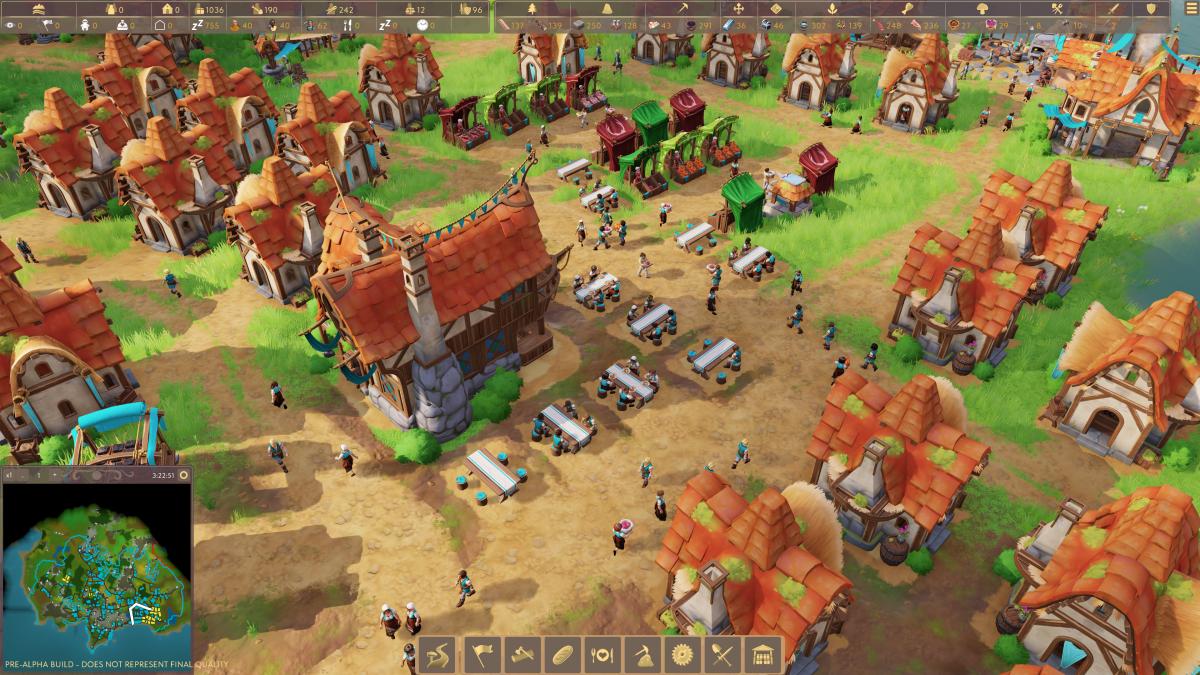
He reckons that people will play one to five hours until they complete a match, depending on map size and other settings – people can tune the difficulty to their liking, for example by including or excluding those mean werewolves mentioned earlier.
Pioneers of Pagonia won’t feature a traditional campaign – at least not to start with. Skirmishes will be the only mode of play. For this, players will be able to team up in co-op as well, either by playing factions of their own or actually sharing the same faction. PvP is not part of the current vision.
Wertich’s team of about 20 people is very efficient and has created something impressive for its size already, but it’s still a small crew on an indie budget – there are limits as to how big it can dream. Wertich is dreaming quite a bit, listing several jobs, buildings, and goods he’d absolutely like to add before Early Access and afterwards. He didn’t want the initial to-do list to be too long, though, because the team wants to make sure that it’ll have the capacity to react to feedback once the game is in players’ hands. Statistics and more customization options for UI are still on the agenda as well.
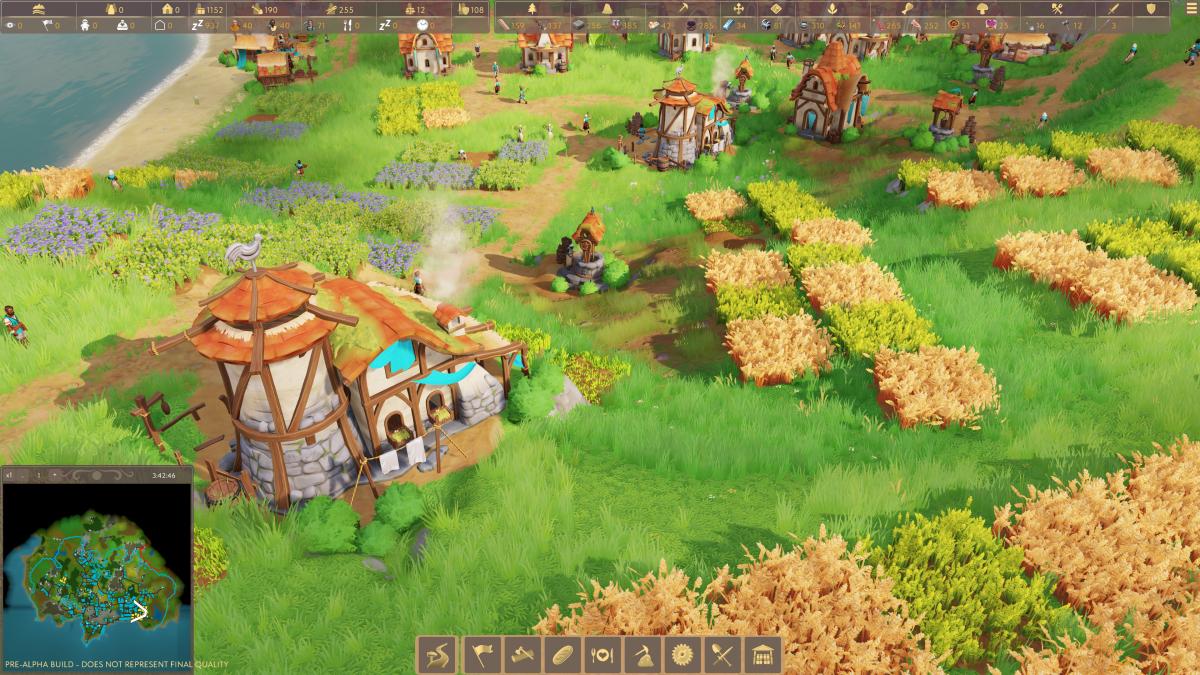
Wertich knows every nook and cranny of his baby, lovingly showing and talking me through everything that’s there and that he hopes to add – it’s clear that this is a labor of love from his entire team. Fortunately, the public interest seems to reward all that passion: At gamescom, the playable build of Pioneers of Pagonia got so much attention from attendees that the organizers had to chart out extra queuing space for it – that gives him a good feeling, Wertich comments.
Pioneers of Pagonia will be released on PC via Steam Early Access on December 13, 2023. A demo will become available before the upcoming Steam Next Fest in October 2023.
